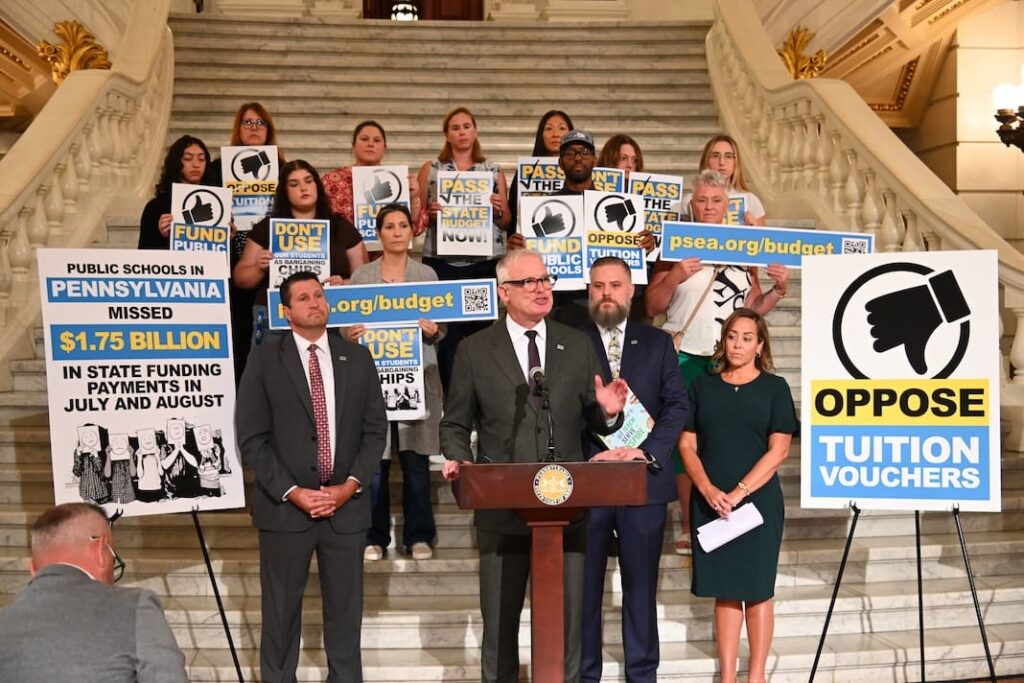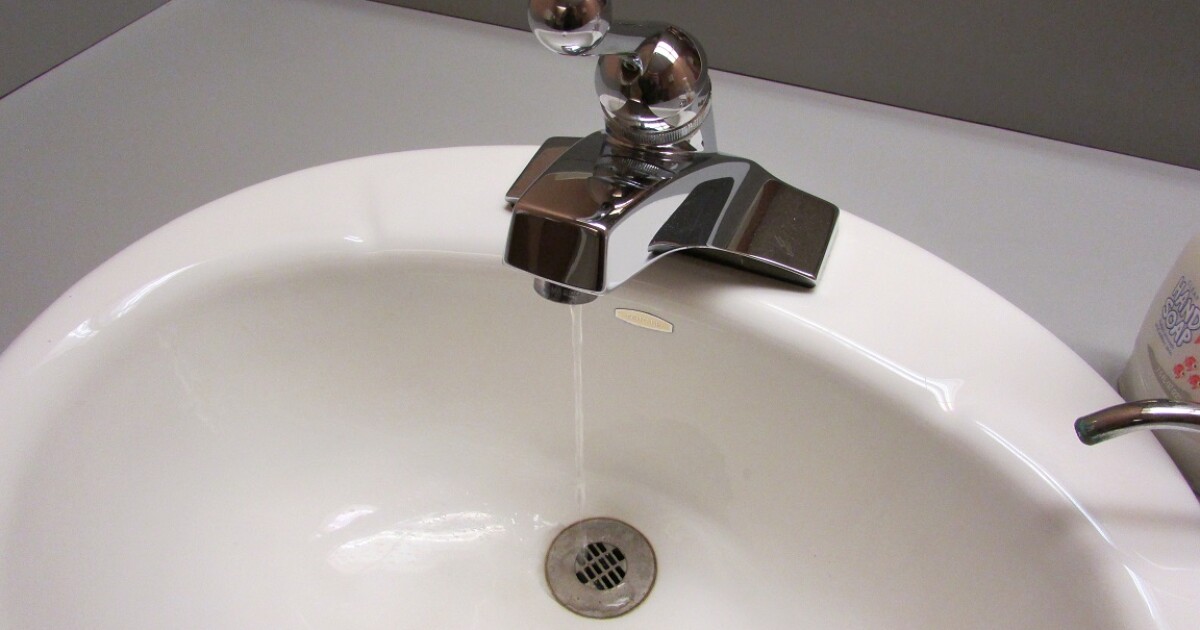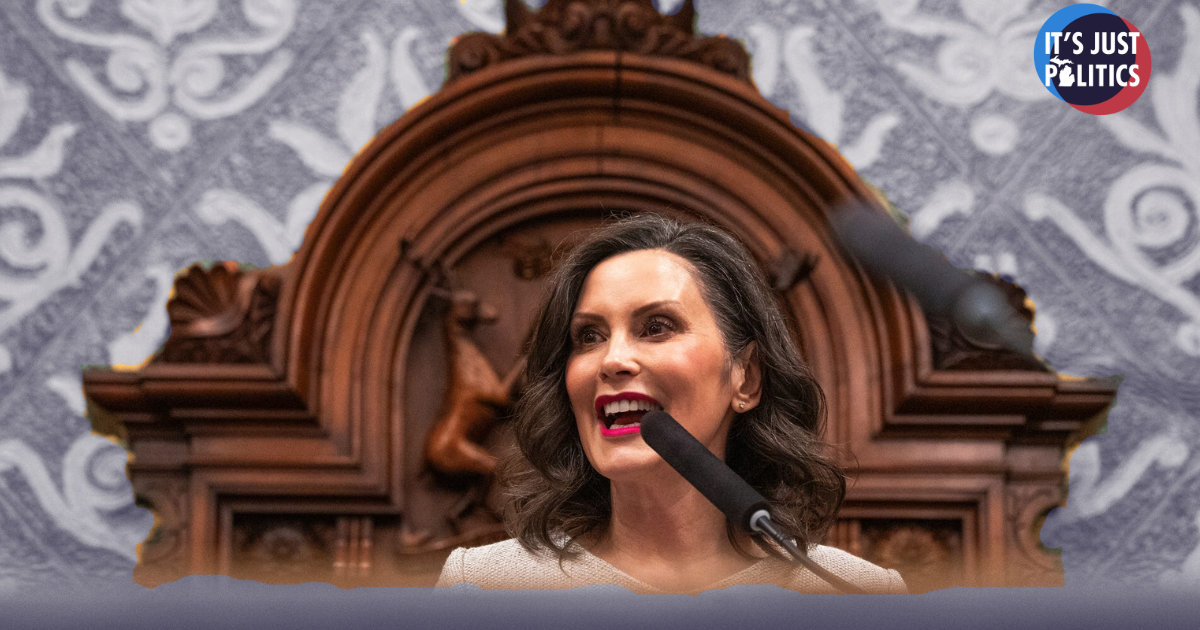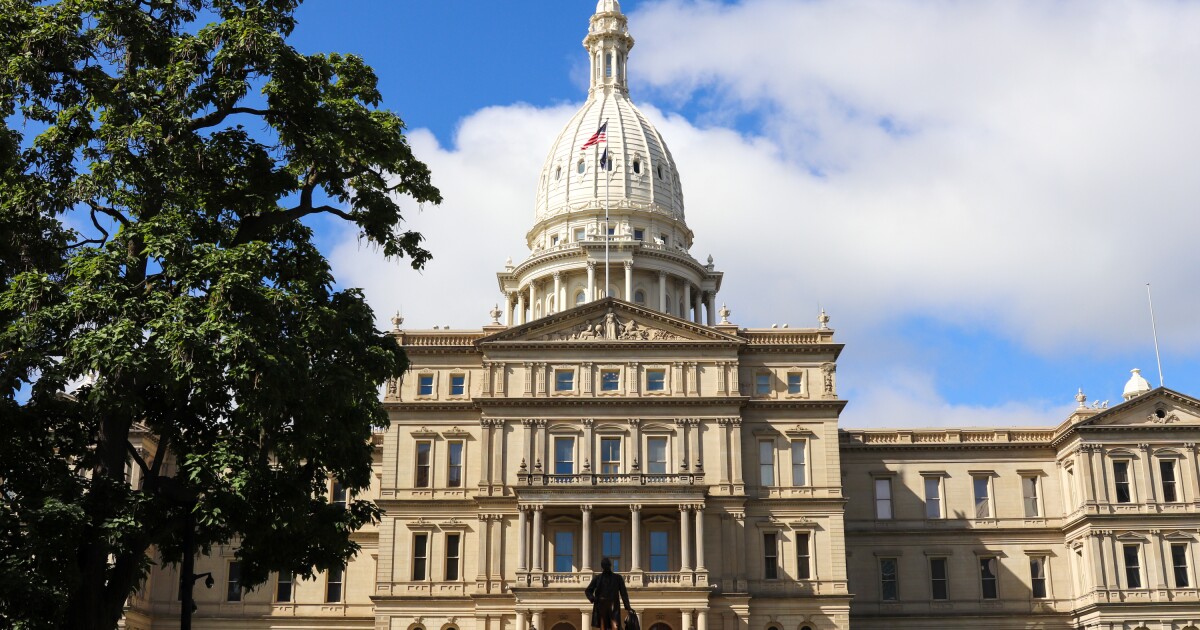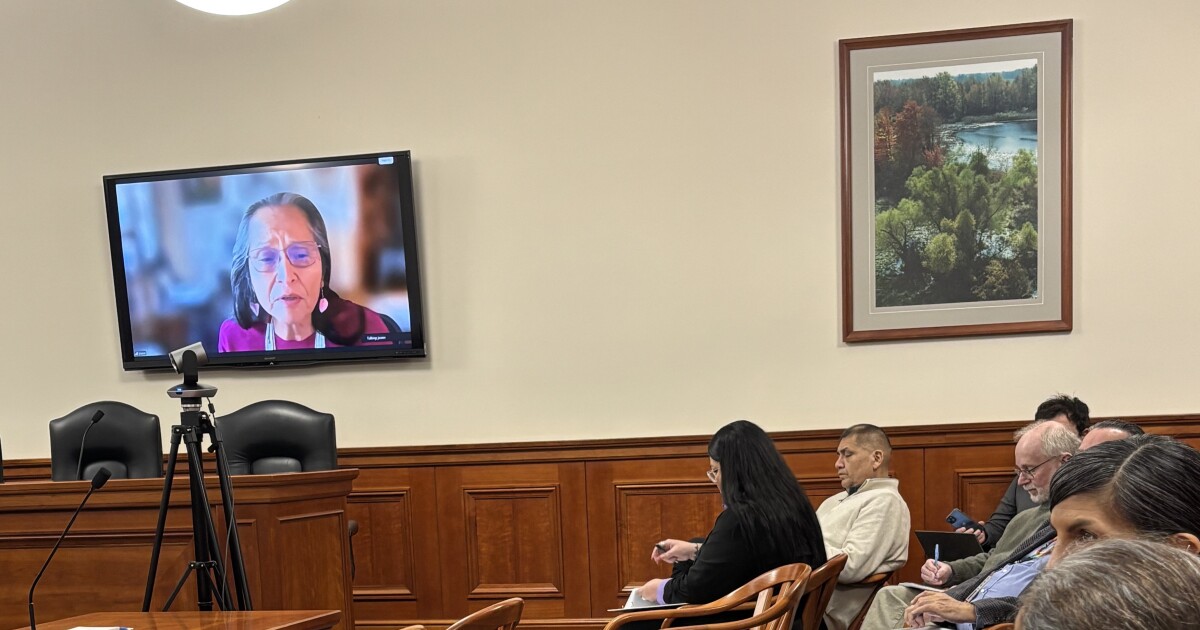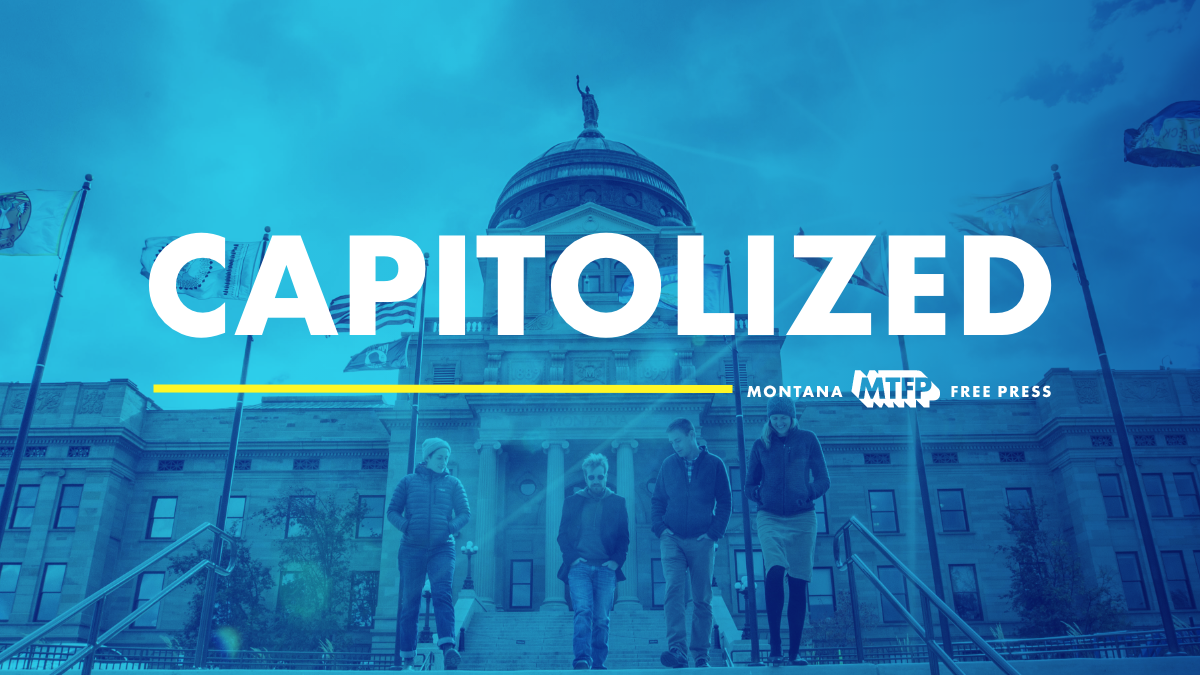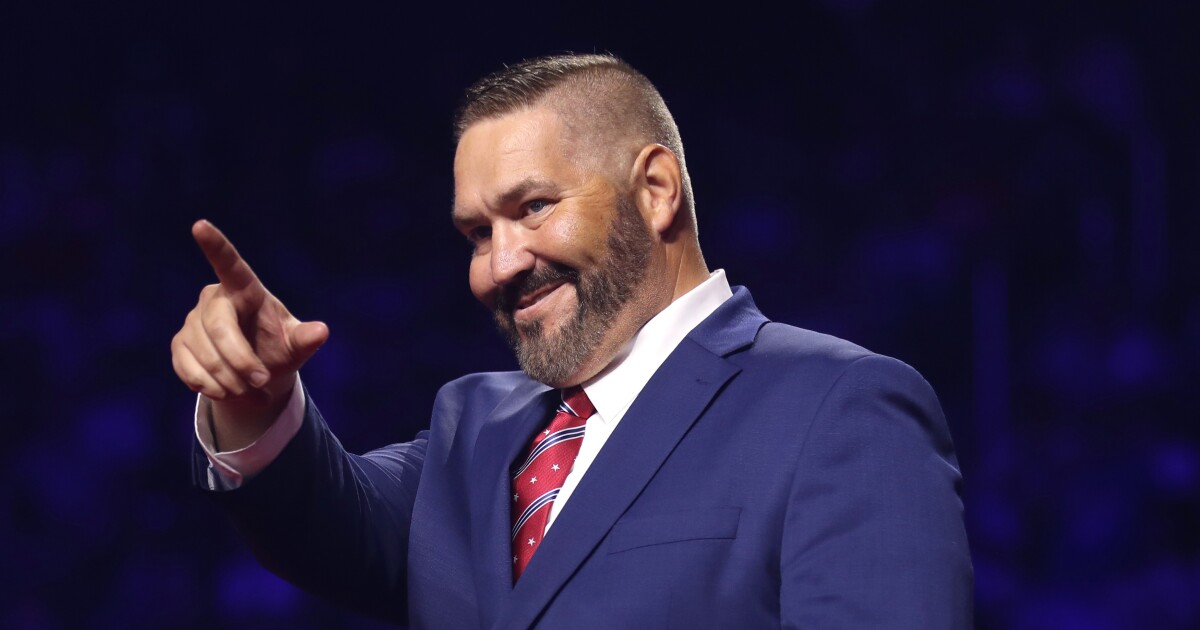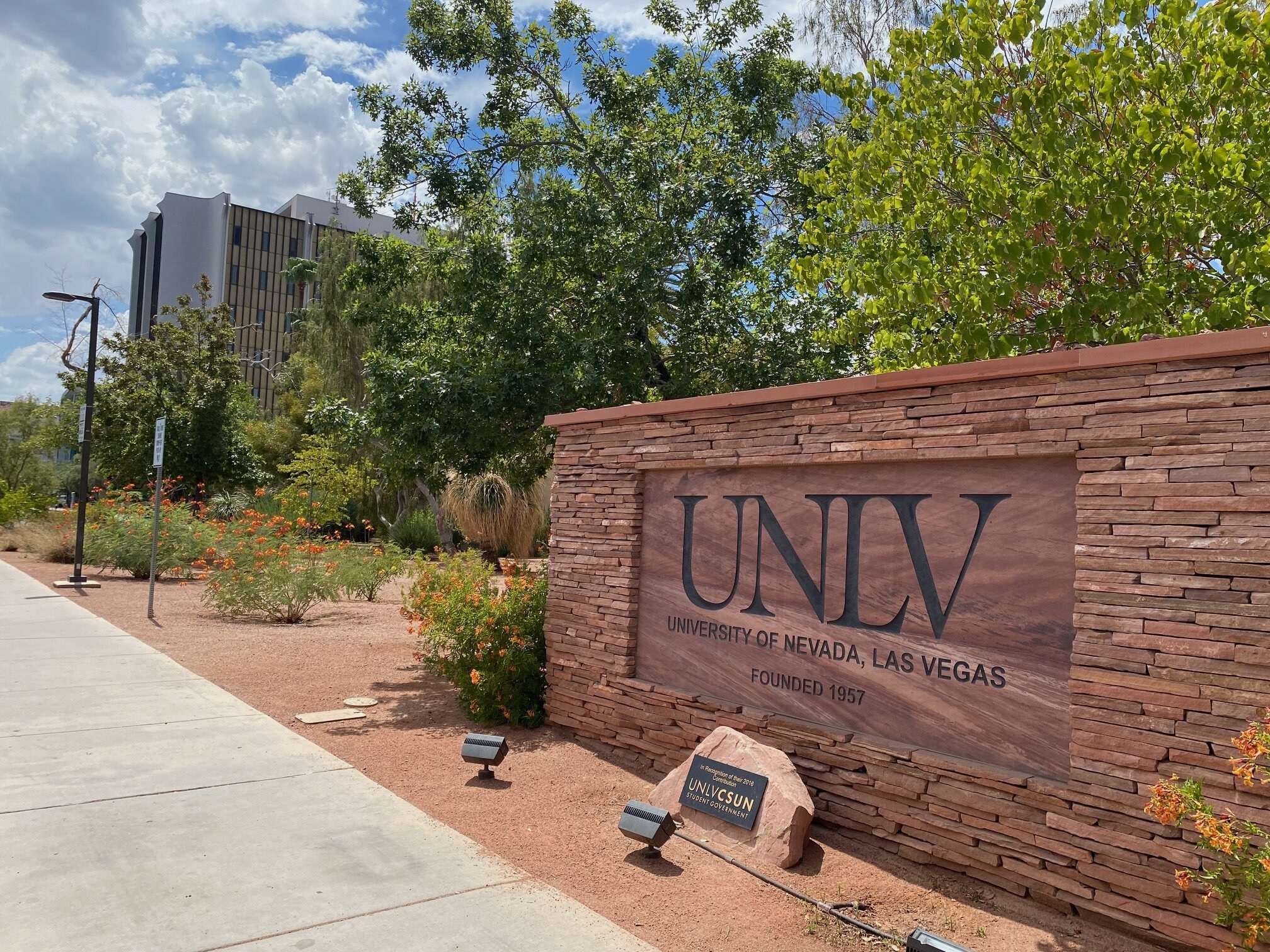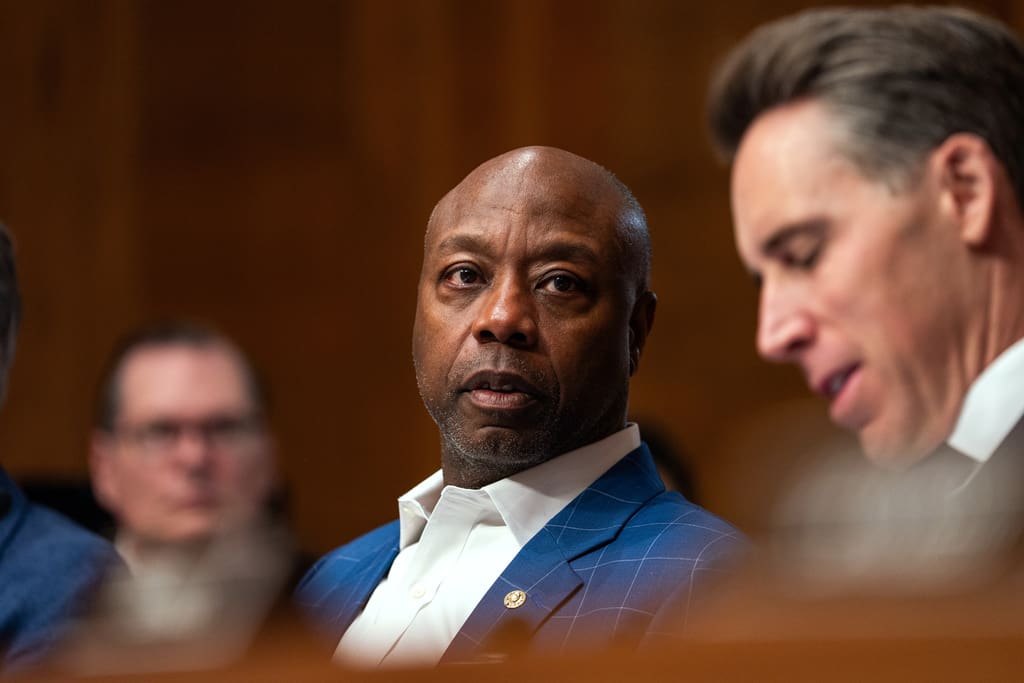Article Summary –
The Pennsylvania state budget impasse has led to a significant delay in funding for public schools, with approximately $1.75 billion in payments delayed statewide and $23.7 million specifically missed by the School District of Lancaster, necessitating a $35 million line of credit to cover costs. The budget deadlock arises from disagreements between the Republican-controlled Senate and the Democratic-controlled House over increased funding for education and public transportation, with Democrats advocating for additional resources following a court ruling on illegal underfunding in low-income areas. Educators and union leaders criticize the Republican push for school vouchers, arguing that it diverts funds from public schools to private institutions and that past evidence shows such programs do not improve student achievement.
Amid educators and union leaders at the Pennsylvania State Capitol on Aug. 26, Christina Rojas, a speech-language pathologist from the Lancaster School District, urged, “As a taxpayer, proud to be from Pennsylvania, I call on our legislators to pass a budget and fund our schools.”
The lack of a state budget, now two months overdue, has halted state funding for public schools. The Pennsylvania State Education Association reports a budget impasse delaying $1.75 billion in school payments.
“In Lancaster alone, we’ve missed $23.7 million,” said Rojas, also president of the Lancaster Education Association. “This money could support our 20 schools and over 10,000 students. Local revenue covers only a third of our budget, making state funding crucial.”
To counteract the missing funds, the Lancaster School District board approved a $35 million line of credit with First National Bank, as reported by Lancaster Online.
“The loan costs $200,000 in fees and interest, diverting funds from teachers and student services,” Rojas noted. “It’s a political game using our kids as pawns.”
The 2025-26 budget is stalled due to disagreements between the Republican-controlled Senate and Democratic-controlled House on education and public transportation funding.
Gov. Josh Shapiro and Democrats advocated for increased funding in both areas, with the House passing a budget in July to this effect. The Senate has resisted, not voting on a comprehensive 2025-26 budget bill, only passing a temporary budget on Aug. 12.
Democrats argue more education funding is needed post a 2023 court ruling on Pennsylvania’s illegal underfunding of schools in low-income areas.
The Pennsylvania constitution requires a balanced budget by June 30 each year, often missed. This year’s delay affects schools, health departments, and public transit, beyond typical short-term delays.
After a temporary budget passed, Shapiro accused Republicans of stalling negotiations to damage his image before next year’s gubernatorial race.
“I understand the game,” Shapiro said, as reported by WITF. “Stalling the budget for political gain hurts Pennsylvanians.”
Jimbo Lamb, a high school math teacher, criticized the Senate’s temporary budget for flat-funding schools despite increased costs, at the Aug. 26 press conference.
Educators criticized Republican desires to fund school vouchers, as mentioned by Kim Ward on an Aug. 5 radio show. Republicans have advocated for years to redirect public funds to private school attendees.
“Our kids are not bargaining chips,” said Aaron Chapin of the Pennsylvania State Education Association. “Vouchers shift taxpayers’ dollars from public to private schools.”
Educators cited studies showing vouchers do not improve student outcomes, as seen post-Hurricane Katrina and during COVID. Lamb stated, “Vouchers will divert millions from public schools, proven failures elsewhere. Pennsylvania shouldn’t repeat these mistakes.”
—
Read More Pennsylvania News

